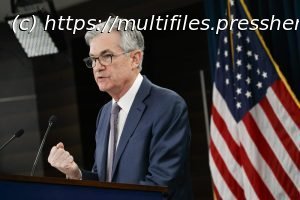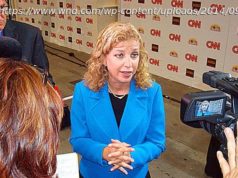The Fed chairmans says a lending program the agency is creating for small businesses should be operating by the end of the month.
WASHINGTON — Facing the gravest U. S. economic crisis in decades, Treasury Secretary Steven Mnuchin and Federal Reserve Chair Jerome Powell offered Congress contrasting views Tuesday of what the government’s most urgent priority should be.
Striking a theme frequently pushed by President Trump, Mnuchin warned that prolonged business shutdowns would pose long-term threats to the economy, from widespread bankruptcies for small businesses to long-term unemployment for millions of Americans.
“There is risk of permanent damage,” Mnuchin said.
Powell, by contrast, stressed, as he has in recent weeks, that the nation is gripped by an economic shock “without modern precedent” and that Congress must consider providing further financial aid soon to support states, localities, businesses and individuals to prevent an even deeper recession.
“What Congress has done to date has been remarkably timely and forceful,” Powell said. “But we need to step back and ask, ‘Is it enough?”
Their points of emphasis reflect the contours of a debate occurring across the country, among individuals, business people and political leaders, about when and under what circumstances the economy should reopen and what further help the government can or should provide.
Mnuchin and Powell offered their views at an oversight hearing of the Senate Banking Committee at which members of both parties questioned them about when their agencies will distribute more of the emergency aid that Congress provided in late March to struggling small businesses and households.
Powell said that a highly anticipated lending program the Fed is creating for small businesses should be operating by the end of the month. And in a turnaround, Mnuchin said the Treasury is now prepared to absorb some losses in that program, which is funded by Treasury. Doing so could enable the Fed to take on further risk with the program and help more struggling companies.






